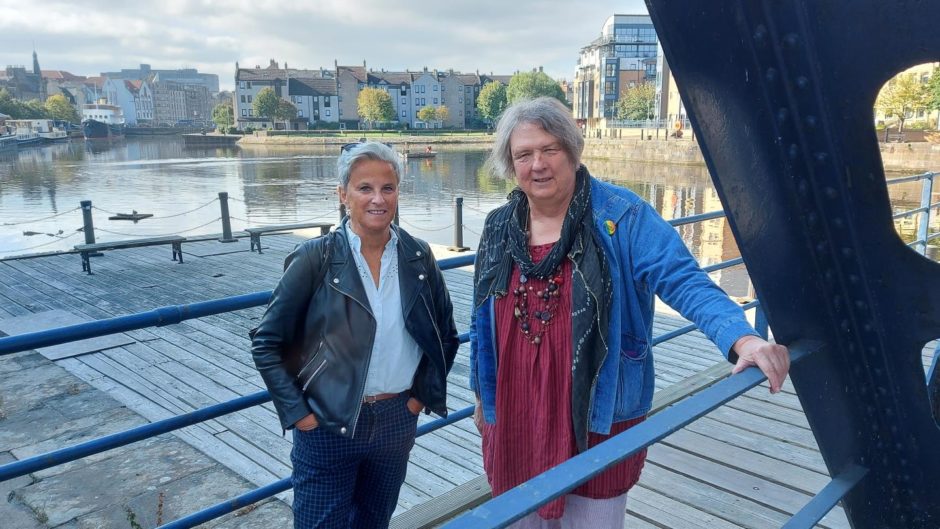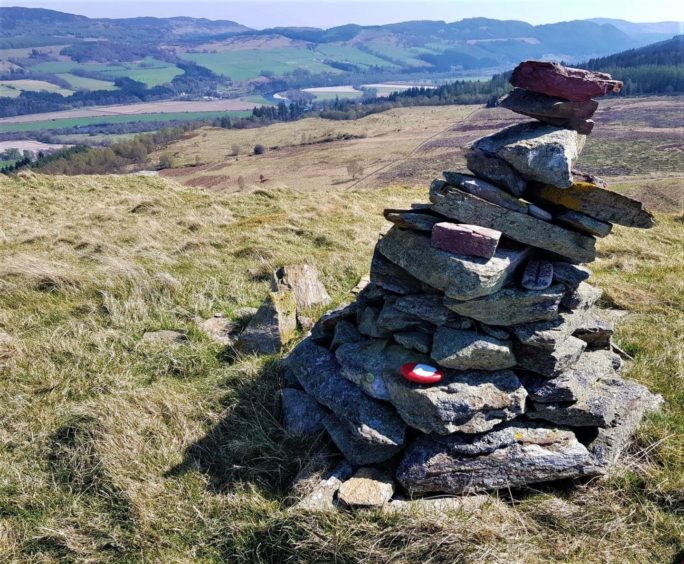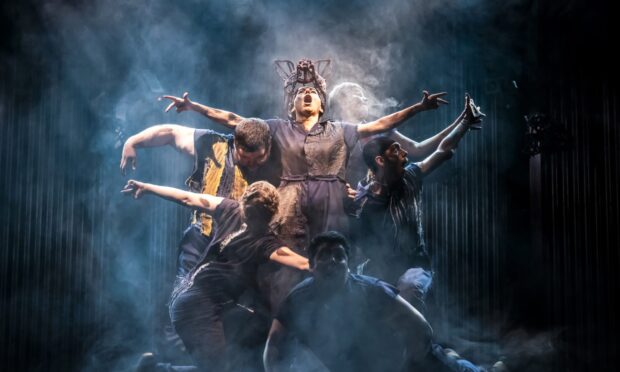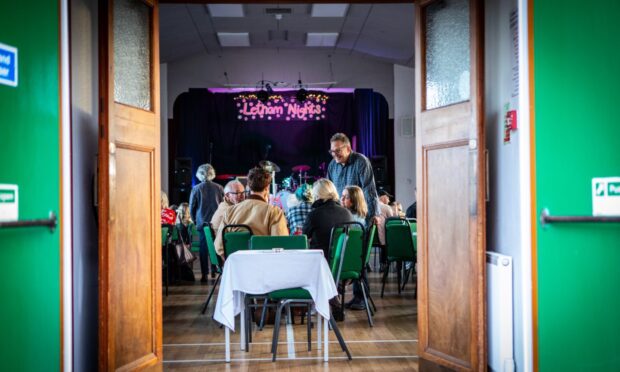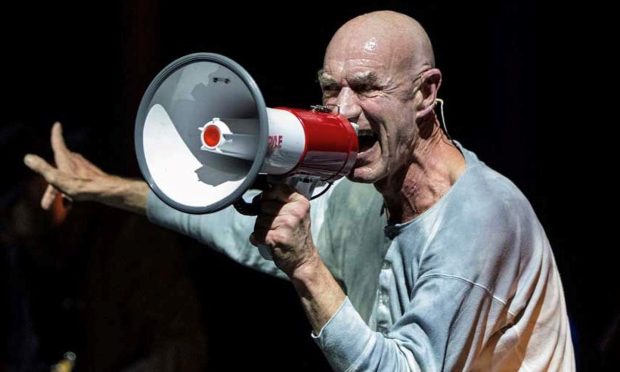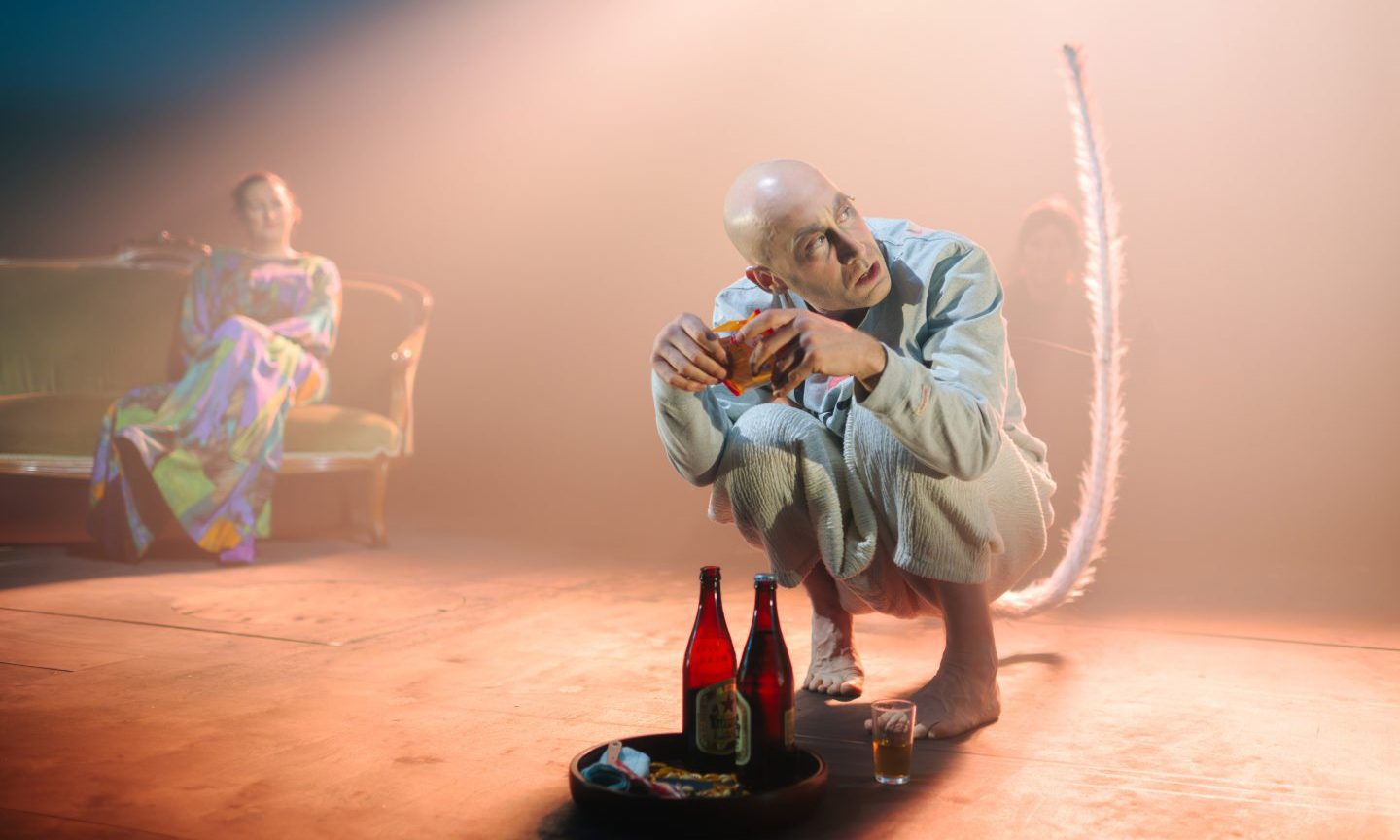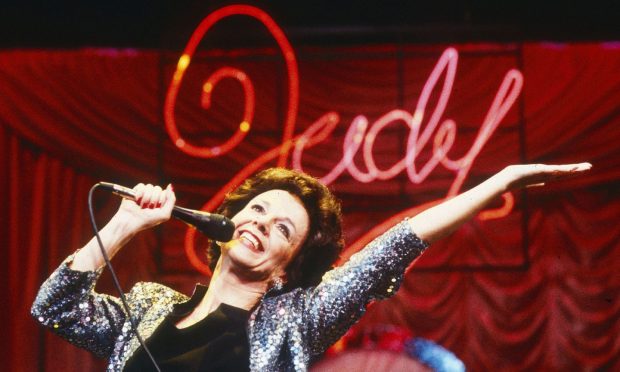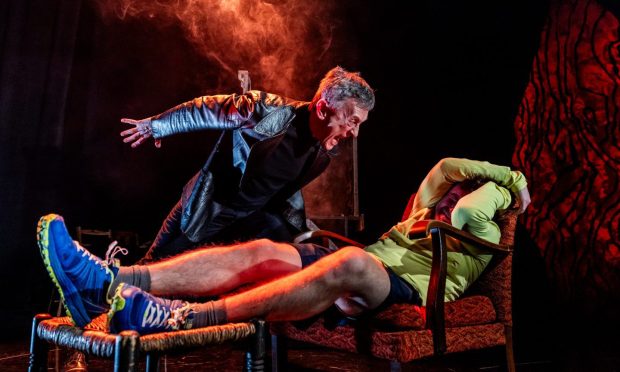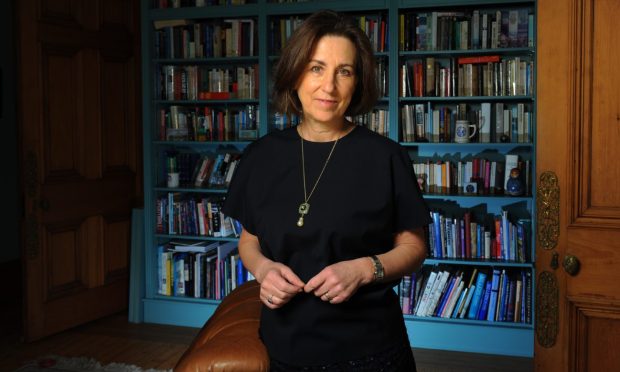“Everybody carries grief from one thing or another, and often in our society it’s difficult to acknowledge that grief,” says theatre-maker Jo Clifford.
She is speaking about her new work The Covid Requiem, which is taking place in the grounds of Pitlochry Festival Theatre.
Created with historian and theologian Lesley Orr, it’s part promenade theatre performance, part memorial for the experience we’ve all just been through.
Acknowledging grief
“I hope the audience will come away with the sense their grief has been acknowledged and honoured in a safe space, and with a sense of human solidarity and the hope that comes from that,” continues Clifford.
“With the sense that, yes, this has been a terrible time, it’s continuing to be a terrible time, but it’s possible to recover from this, to move on. It is possible for things to change for the better.”
Clifford and Orr were put in touch by Pitlochry Festival Theatre’s artistic director Elizabeth Newman, and both share a sense of recent personal grief which has fed into the work.
In the weeks leading up to the pandemic, Clifford lost her brother and Orr lost her partner, and both speak with gratitude that they were at least able to commemorate their lives in the company of those close to them.
The importance of saying goodbye
“It was so important that somebody was there with him,” says Clifford of her brother, whose eulogy she was asked to deliver.
“I understood from that how important it is that after somebody dies, their story be told and witnessed.
“When the pandemic broke out and it became impossible for people to be with their loved ones while they were dying, I knew that would be causing such a lot of suffering.
“Then afterwards they weren’t able to have proper funerals, and I thought, how horrible for people who have lost those they love in this pandemic.
“I also thought, well, in terms of my work as a theatre maker, I have the skills to try to devise something – to see if we can bring a bit of comfort and recognition to people in this situation.”
The pair discussed the project via email and them by Zoom.
“We exchanged our reflections on the notion of ‘requiem’, and what this event could or should be,” says Orr.
“Would it be a ceremony or a ritual? What would be helpful for people? We’re drawing on the historical roots of different liturgical and cultural traditions of mourning and grieving.”
Stages of grief
Fiddle player Duncan Chisholm and multi-instrumentalist Innes Watson will accompany the performance, but Clifford and Orr are careful not to ground the experience they’ve devised in purely theatrical terms.
They allude to the five ‘scenes’ as being more like Stations of the Cross or stages of grief. Clifford refers to the experience as a ceremony, Orr as a pilgrimage, and they use terms like ‘celebrants’ or ‘witnesses’, rather than audience.
Theatre has its roots in religious ritual
“Western theatre has its roots in religious ritual, and for me the sacredness of a theatre space is important,” says Clifford.
“This event is sacred in a secular way, and you don’t have to believe in any religion to get that sacredness.
“I do think we are spiritual beings, though, that this is a really important part of what it is to be human, but that the spiritual dimension to our lives is very hard to talk about.
“It’s been misused over the centuries by many organised religions, but it’s still important and it needs to be thought about and addressed.”
A gentle catharsis
The experience seems to offer a form of gentle catharsis.
“This is happening in a natural setting,” says Clifford.
“By the time we perform it will be the beginning of autumn, and the leaves will be beginning to fall off the trees, so we’re in a place that reminds us of the cycles of nature, of death and renewal. I think that’s really important.
Dimensions of gratitude
“Obviously the grief of the families was our basic concern, but we started to think about all the people that have contributed so much to everybody’s well-being.
“The posties, the grocery delivery people, the plumbers, the locksmiths, as well as frontline workers who have worked so hard and suffered so much.
“We felt there needed to be a dimension of gratitude for this work, and a dimension of anger – anger at people being taken from us too soon is always turned up in grief, but also anger at the incompetence and corruption in the way this has been dealt with.”
A message of hope
“There is anger and protest, but also hope,” says Orr.
“Just that notion, going back to the word ‘requiem’, of rest. That out of this catastrophic thing that’s turned us all upside down, there may be hope for something better, for a kinder world to emerge.”
- The Covid Requiem is at Pitlochry Festival Theatre from Wednesday September 15 to Saturday September 18. www.pitlochryfestivaltheatre.com

